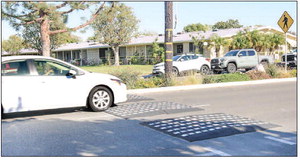Ways to maintain memory as you age
Adults confront various age-related side effects as they transition from middle age to their golden years. The Harvard Medical School notes that fleeting memory problems experienced with aging often reflect normal changes in the structure and function of the brain. But it’s important not to mistake those changes for dementia, and equally important for older adults to recognize there are many ways they can protect and sharpen their minds as they age.
• Continue learning. Experts theorize that advanced education compels people to remain mentally active, which in turn helps them maintain a strong memory. Even aging adults who are still working in challenging fields can benefit from pursuing a new hobby or learning a new skill.
• Use the organizational tools like planners, maps and lists that can help maintain memories. Expending mental energy on finding car keys or remembering what to buy at the store makes it harder to learn new and important things.
• Let all your senses play a role. Reports show that the more senses people use to learn something, the more their brain is involved in retaining a memory. Researchers believe that when the additional parts of the brain are activated, people can have a better recall of the things to remember or complete.
—MetroCreativeConnection


